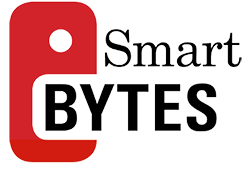By Susan Baum, Ph.D.
Students with learning disabilities who are also gifted have unique needs. These twice-exceptional (2e) kids understand far more than their mainstream peers, yet they may have trouble spelling simple words, tying their shoes, or remembering to bring home their textbooks.
Despite advanced intellectual capabilities, 2e students often require academic supports and accommodations to succeed—help they may spurn as it makes them feel as if they’re cheating. Even the traditional classroom can be challenging as highly stimulating, cluttered environments magnify problems with attention.
For many 2e students, feeling valued and respected, and having a sense of belonging are critical to success, yet they often feel out of place and stressed out.
Because they defy our stereotypes of both gifted and LD students, they are often misdiagnosed and over-medicated, and educators frequently assume that they are lazy or less capable than their peers.
What Can You Do?
As a parent, the best way to help your 2e child succeed is by providing a nurturing environment. Use the following guidelines to help achieve that.
- Rather than placing emphasis on academic skills, show that you like, respect, and value who your child is.
- Never put your child’s gifts on hold until he catches up academically. It is through development of these talents and abilities that he will become self-regulated, empowered, confident, goal-directed, and successful.
- Take the initiative in your school system to help create a learning community that respects the intellectual, physical, and emotional needs of 2e students. Use the suggestions below and work with your child’s team to ensure that the educational environment meets his needs.
School Checklist
- The curriculum should be at a level that is challenging, engaging, and preserves feelings of self-efficacy.
- To allow full access to the curriculum, information should be presented in alternative ways (videos, demonstrations, hands-on learning, etc.), and assistive technologies utilized as necessary. AT may be particularly helpful to support the writing process, from note-taking to formal writing assignments. It is often helpful to have students dictate stories first and type them later. Also encourage the school to use alternative modes of expression, such as drama and poetry.
- Utilize teaching and learning activities that enable 2e students to remain focused on the lesson. Effective strategies include presenting moral dilemmas, simulations, Socratic questioning, project-based learning, and creative problem solving.
- Create a quiet space where students can organize their thoughts and focus on tasks. This can be a shared space as long as students have the opportunity to use it privately. Equip the space with a computer and other materials to aid the learning process.
- Create a space conducive to reading, equipped with soft lighting (fluorescent lighting may be debilitating) and comfortable seating.
- When it is not possible to have smaller class sizes, whole-class teaching should be kept to a minimum. Place 2e students with others who share their interests and skills to maximize attention and learning.
- To build confidence, empower students to choose how to learn and be assessed, and respect their choices. For example, a model of a molecule should be valued as much as an essay about that molecule. Offering students choices allows 2e students to accept accommodations without feeling different or inferior.
- Teach the skills of emotional intelligence through group discussion and direct teaching. When 2e students share social and emotional issues, they discover that peers also have similar concerns.
- Most important, identify and nurture talents. These gifts are critical to the lifelong success of 2e students, yet they are often compromised by academic, social or emotional challenges. Opportunities include advanced classes in talent areas, working on creative projects with other talented students, mentorships, and competitions.
Susan Baum is the Co-Director of the International Center for Talent Development, and the Director of Professional Development at Bridges Academy for students with LD. She is co-author of To Be Gifted & Learning Disabled, and a member of Smart Kids with LD’s Professional Advisory Board.
Related Smart Kids Topics
